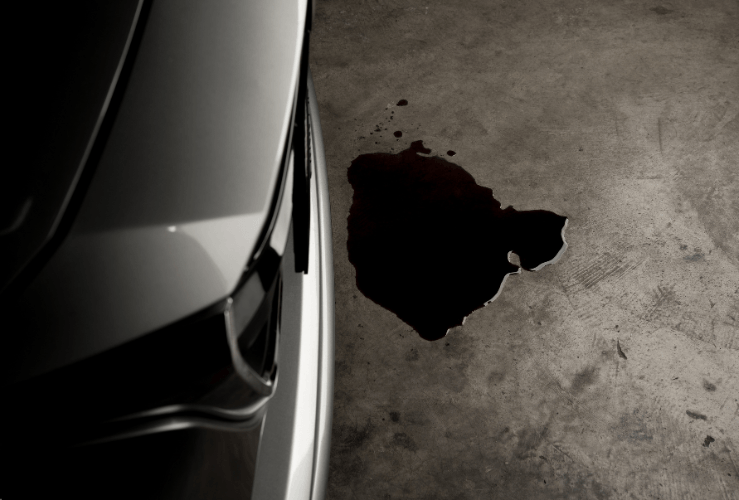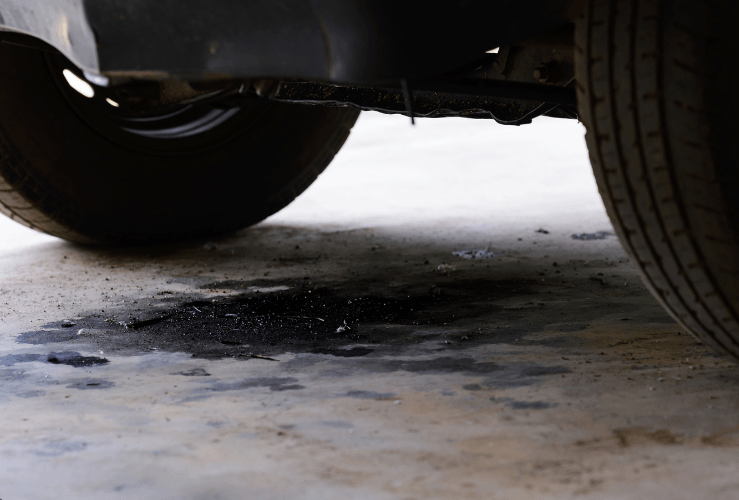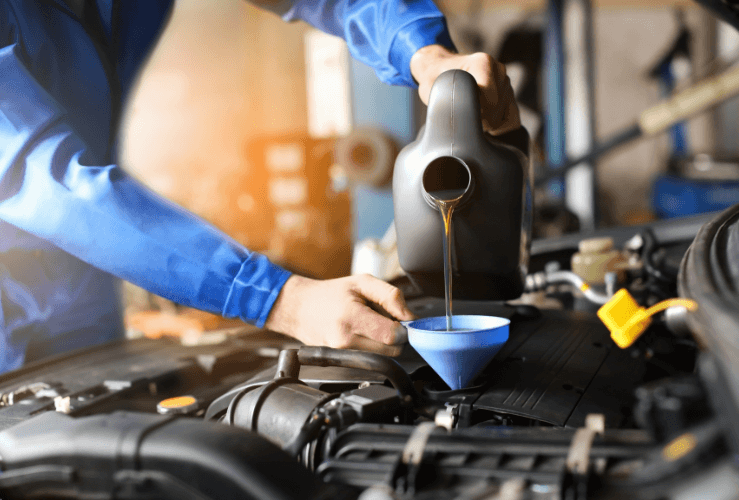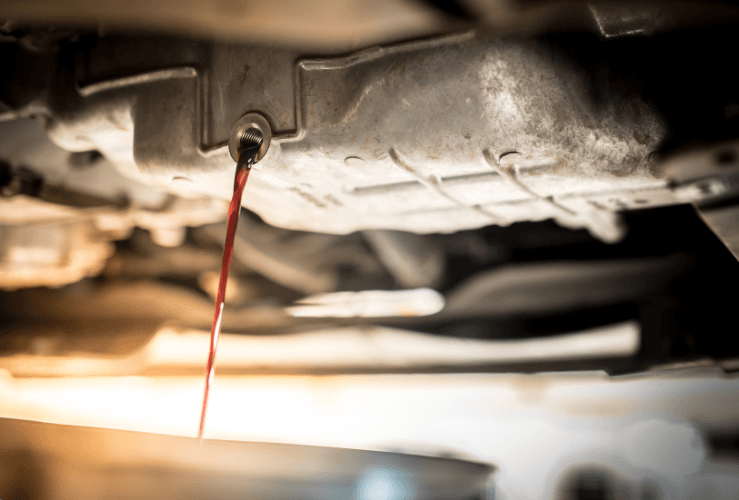Your car's engine needs sufficient oil to work properly. Without it, components could seize up, resulting in a large repair bill - or even having to write off your vehicle.
What does engine oil do?
- Protects the engine's moving parts from wear and tear
- Prevents components from overheating
- Protects engine parts from corrosion
- Helps remove particles and debris from the engine
In this article we'll look at the key causes of oil leaks and how to fix them. We'll also discuss whether a vehicle is safe to drive if it's leaking oil.
Note: You should always check your vehicle handbook for any fault remedy before carrying out any work on your vehicle. If you are unsure of what is required to fix any problems, please consult a professional.
The dangers of a car oil leak
Oil leaks should be addressed as soon as possible. Leaking oil can catch fire, and if too much oil has been lost from your engine, it could seize up while you're driving - posing a severe risk to you, your passengers, and other road users.
Additionally, without the lubricating effects of oil, your engine could sustain permanent damage (meaning either a new engine, or a new car).
Oil leaks also pose a threat to the environment. If oil on your driveway gets washed away by rain, it may enter water and sewage systems, potentially harming plants and animals.
Can I drive my car if it's leaking oil?
You should avoid long distance driving, as this can increase the oil temperature.
Oil may catch fire if it leaks onto a hot exhaust. In truth, the only place you should be driving is your local garage.
With heavier oil leaks you should not drive the vehicle at all (e.g., an oil pan leak). Instead get it towed to a garage for repairs.
Note that cars with oil leak sensors may prevent your engine from starting at all.
Safety first
Unless you have experience with the mechanics of the modern motor car, chances are you'll have any oil leaks remedied by your local garage.
However, if you have the required experience and you wish to get hands-on yourself, be sure to wear eye and hand protection.

First signs you have an oil leak
- You see patches of oil under your car
- You smell burnt oil (which suggest oil has escaped from the engine and is burning on one of its surfaces)
- Oil pressure light comes on
- Low oil levels
Why have I got an oil leak?
Worn and cracked seals
Your car has numerous rubber sealing elements between its various parts. These are called gaskets, O-rings, and seals.
As time passes, these rubber seals can become worn, resulting in an oil leak - which is most obvious where the rubber seals two car parts.
Broken down seals are one of the most common oil leak causes.
How to fix worn and cracked seals
- Open the bonnet and examine the valve cover. Leaking lubricant where the valve cover and cylinder head join suggests the gasket has worn away and should be swapped out for a new one.
- Examine where the cylinder head and engine block meet. Oil seepage in this area suggests engine overheating, which can warp the cylinder head and engine block, and break down the gasket.
- Open the coolant reservoir and look inside. If you see any lubricant, it signals the engine block and cylinder head are not tightly connected (due to a worn gasket).
- Examine the oil filter neck. If you notice white foam, then coolant is entering the engine's lubrication system.
- Get a new gasket installed at your local garage.
- If you see oil leaking from under the seal of the oil filter, attempt to tighten the part. If this fails, get a new part.
- Make a visual inspection of the ignition distributor mounting seat. See a leak? Replace the O-ring or oil seal.
- Take a look at the crankshaft oil seals. If they have failed, have a new one installed.

Excessive pressure in the lubrication system
Debris and impurities can accumulate in parts of your car's lubrication system, causing pressure to increase - and therefore oil to seep from joints and seals. In some cases too much high viscosity lubricant is the culprit.
How to address excessive pressure
- Use a pressure gauge to measure the lubrication system's pressure levels.
- If the pressure is on the high side, and your car has covered around 12,000 miles in the meantime, change the oil and filter.
- Use oil with the correct viscosity. Refer to your owner's manual for this information.
- Next, pour flushing additive into the car's oil filter neck. Then start the engine and let it idle, drain the fluid, swap out the oil filter and add new oil.
- Ensure the oil level is optimal. Remove any excess through the drain plug.
- Disconnect and examine the pressure relief valve, clean it, and ensure the locking mechanism moves uninhibited. If you see any faults, you may need to install a new pump assembly.
- Turn on the engine so it warms up to driving temperature. Take off the oil filler cap and use your hand to cover the hole. Get someone to depress the accelerator and rev the engine. If you detected pressure with your hand, your crankcase ventilation system may need to be repaired. Your local garage will be able to address the issue.

Damage to oil pan and other components
The oil pan, located underneath your car, is particularly vulnerable to being damaged if you strike an obstacle.
How to address oil pan damage
- Take the car to your local garage where the oil pan (or other component) can be repaired
- Consider fitting an oil pan guard
Loose suspension fasteners
The vibrations of driving on bumpy, potholed roads can loosen some fasteners, potentially resulting in an oil leak.
How to fix loose fasteners
- Tighten up or replace fasteners and clamps
Incorrectly installed engine components
If the incorrect tightening sequence was used, or if bolts were not tightened properly, the gasket may crack or warp.
How to address installation issues
- Swap out the gaskets and seals, in line with the manufacturer's guidelines (i.e. observe the listed tightening torques etc.)
Conclusion
If you spot (or smell) an oil leak, take steps to address it as soon as you can.
Oil leaks serve as a reminder that keeping your engine well lubricated is critical for maximum service life.




